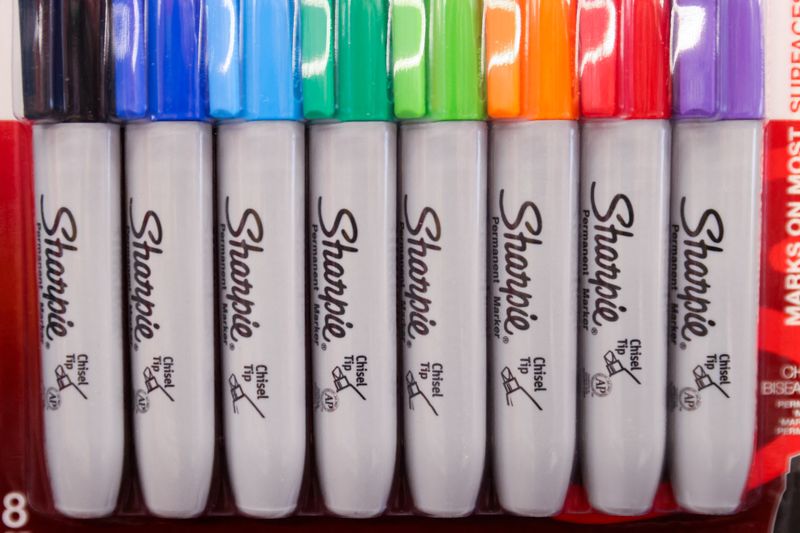By Matt Tracy
(Reuters) - When U.S. consumer products company Newell Brands Inc refinanced $1.1 billion worth of bonds earlier this month, it saw its borrowing costs jump by more than half.
The maker of Sharpie pens and Rubbermaid storage containers agreed to pay annual interest of between 6.4% and 6.6%, up from the 3.9% annual coupon it was paying, in exchange for pushing back the bonds' maturity by four and six years.
Newell Brands had seven months left until it had to pay back the principal on these bonds and could have held out in the hopes of a cheaper debt deal. But with the Federal Reserve rushing to raise interest rates to combat rampant inflation, it made sense for the Atlanta, Georgia-based company to refinance now, credit ratings agency Moody's (NYSE:MCO) Investors Service Inc said in a note. Newell Brands is rated Ba1 by Moody's.
A Newell Brands spokesperson did not respond to a request for comment. The company said in its latest quarterly earnings in July that it was betting on strong cash generation in the second half of 2022, driven by less spending on inventory, to help pay down its debt.
With a debt mountain net of cash of close to $5 billion and projected negative free cash flow this year of about $300 million, Newell Brands is one of hundreds of U.S. companies with overstretched balance sheets.
Many of these companies binged on cheap debt in the past 15 years and are now confronted with higher borrowing costs as a result of central banks tightening their monetary policies. This is restricting their ability to hire and retain employees, as well as invest in their business and return capital to shareholders.
The companies under the greatest strain are prolific users of debt rated as "highly speculative" by credit ratings agencies. Asset manager AllianceBernstein (NYSE:AB) estimates that the average company with a B3 or B- rating -- highly speculative in credit rating agency parlance -- could see an 80% or more reduction of their free cash flow because of the decline in the junk debt markets.
"Our belief is that a large number of B3 rated companies, by virtue of higher interest rates and deterioration of earnings, will become severely free cash flow-constrained," said Scott Macklin, director of leveraged loans at AllianceBernstein.
Moody's analyzed 208 B3-rated companies in June and found that 124 of them saw their free cash flow turn from positive to negative this year. Those funded by loans that have floating interest rates are more vulnerable, Moody's analysts said.
Jessica Gladstone, associate managing director at Moody's and co-author of the report, said bigger companies have more funding options and have been able to secure some fixed-rate financing at less onerous rates. But most companies with junk-rated debt have significant exposure to higher interest rates.
"If we're talking about the typical six times cash flow-leveraged, private equity-owned, all-loans and relatively small B3 company, the vast majority of them are going to see a very significant hit to their cash flow," Gladstone said.
HIGHER BANKRUPTCY RISK
The burden of higher interest payments is expected to lead to more companies filing for bankruptcies. Moody's projects that 3.7% of companies with junk-rated debt will file for bankruptcy by August 2023, up from 2.1% a year earlier.
Among the highly indebted companies facing this bankruptcy risk are healthcare provider Surgery Center Holdings, dentistry operator Heartland Dental, energy infrastructure servicer Artera Services and collision repair provider Wand NewCo 3, according to Moody's.
The vulnerability of these companies is partly due to floating-rate loans comprising a big chunk of their debt pile, according to Moody's.
Representatives for Surgery Center Holdings, Heartland Dental, Artera Services and Wand NewCo 3 did not immediately respond to requests for comment.

While most of the debt-laden companies will remain afloat in the short term, they will have to adjust to higher borrowing costs moving forward. Jeremy Burton, portfolio manager for high-yield bonds and leveraged loans at asset manager PineBridge Investments, said this will be an adjustment many companies will struggle with.
With interest rates having gone up "materially" in recent months, issuers are "probably going to need to come in at a discount" with new debt, Burton said.